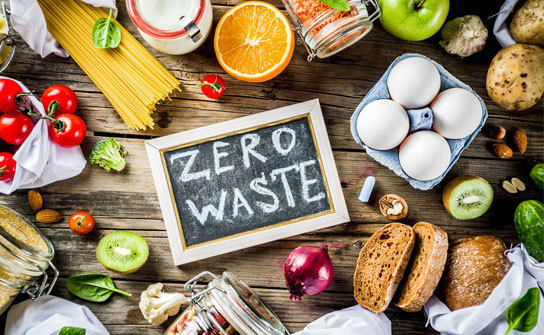 June-04-2023
June-04-2023
View: 7

Before donating, ensure that the food waste is safe for animal consumption and follow any guidelines provided by the organization.
Recycling food waste is not only beneficial for the environment but also a responsible and sustainable practice that helps reduce greenhouse gas emissions and conserve resources. There are several friendly ways to recycle food waste that individuals and communities can adopt.
One of the most common and effective methods is composting. Composting involves the decomposition of organic materials, such as vegetable waste, into nutrient-rich compost that can be used to fertilize gardens and plant beds. To compost kitchen and garden scraps, start by collecting food waste like fruit and vegetable peels, coffee grounds, and eggshells in a compost bin. Mix them with yard trimmings and other organic materials like leaves or grass clippings. Regularly turn the compost to provide oxygen and promote decomposition. Over time, the waste will break down into nutrient-rich soil amendment, which can be used to nourish plants and reduce the need for chemical fertilizers.
Another way to recycle food waste is by putting it to work in creative ways. Leftover fruits and vegetables can be used to create delicious smoothies, soups, or stir-fries, reducing the need to buy additional ingredients. Stale bread can be transformed into breadcrumbs or croutons, and overripe fruits can be blended into tasty sauces or used for baking. By getting creative with leftovers, we can minimize waste and maximize the use of food resources.
Donating food waste for animal feed is another environmentally friendly option. Many organizations, such as local farms or animal sanctuaries, accept food scraps to feed animals. Before donating, ensure that the food waste is safe for animal consumption and follow any guidelines provided by the organization. This not only reduces waste but also helps to provide nutritious food for animals in need.
Food waste can also be converted into biogas through a process called anaerobic digestion. Anaerobic digestion involves breaking down organic matter, including food waste, in the absence of oxygen, resulting in the production of biogas, which can be used as a renewable energy source. Biogas can be used for cooking, heating, or generating electricity. Many communities and facilities have anaerobic digestion systems in place to convert food waste into biogas, contributing to renewable energy production and reducing dependence on fossil fuels.
When it comes to recycling food waste, it's also essential to consider the packaging materials associated with food products. Many food packaging materials are recyclable, such as glass, metal cans, and certain types of plastic containers. Separate and recycle the packaging materials appropriately, ensuring they are clean and free from any food residue. By recycling food packaging, we can reduce the demand for raw materials and minimize the environmental impact associated with their production.
In conclusion, recycling food waste is a crucial step in promoting sustainability and reducing environmental impact. By composting kitchen and garden scraps, creatively using leftovers, donating waste for animal feed, converting food scrap into biogas, and recycling food packaging materials, we can significantly reduce the amount of food waste that ends up in landfills and contribute to a more sustainable future. By implementing these friendly recycling methods, we can minimize greenhouse gas emissions, conserve resources, and create a positive impact on the environment and our communities.